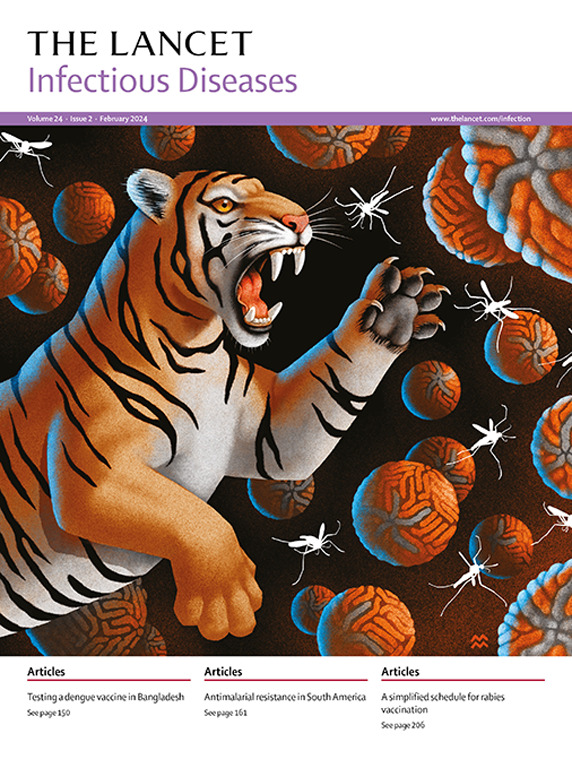The (Re)-emerging And ePidemic Infectious Diseases (RAPID) Stigma Scales: a cross-outbreak scale development and pyschometric validation study
IF 36.4
1区 医学
Q1 INFECTIOUS DISEASES
引用次数: 0
Abstract
Reducing stigma during infectious disease outbreaks is crucial for delivering an effective response. However, no validated stigma scales exist for use across outbreaks, and outbreak-specific scales are developed too slowly to guide timely interventions. To enable more real-time monitoring and mitigation of stigma across outbreak contexts, we developed and validated the (Re)-emerging and ePidemic Infectious Diseases (RAPID) Stigma Scales. Field testing and psychometric validation were conducted in communities affected by Ebola disease in Uganda, mpox in the UK, and Nipah virus disease in Bangladesh. Content validity was established through cognitive interviews and expert Delphi scoring. 1008 respondents were included across the three countries. The final RAPID Community Stigma Scale (12 items) captures initial social stigma, provider or authority-related stigma, structural stigma, and enduring social stigma. The RAPID Self Stigma Scale (4 items) is unidimensional. Both scales were found to have robust psychometric properties, including content validity, structural validity (factor loadings ≥0·6), and reliability (ordinal alphas 0·79–0·92). High scores on both scales predicted an increased hesitancy to report symptoms and seek care. The RAPID Stigma Scales are validated tools for real-time assessment of stigma across outbreak settings, enabling responders to design targeted interventions to improve health outcomes and promote equitable care.(重新)出现和流行的传染病(RAPID)柱头量表:一个交叉爆发量表的发展和心理计量学验证研究
在传染病暴发期间减少耻辱感对于采取有效应对措施至关重要。然而,目前还没有经过验证的病耻感量表可在疫情期间使用,而且针对疫情的量表开发速度太慢,无法及时指导干预措施。为了能够在疫情背景下更加实时地监测和减轻病耻感,我们开发并验证了(新)发和流行传染病(RAPID)病耻感量表。在乌干达受埃博拉病影响的社区、英国受mpox影响的社区和孟加拉国受尼帕病毒病影响的社区进行了现场测试和心理计量学验证。通过认知访谈和专家德尔菲评分建立内容效度。1008名受访者来自三个国家。最终的RAPID社区污名量表(12个项目)包括最初的社会污名、提供者或权威相关的污名、结构性污名和持久的社会污名。快速自我耻感量表(4项)为单向度量表。两份量表均具有较强的心理测量特性,包括内容效度、结构效度(因子负荷≥0.6)和信度(序数alpha值为0.79 - 0.92)。两项指标的得分都较高,预示着报告症状和寻求治疗的犹豫程度会增加。快速病耻感量表是在疫情背景下实时评估病耻感的有效工具,使应对人员能够设计有针对性的干预措施,以改善卫生结果并促进公平护理。
本文章由计算机程序翻译,如有差异,请以英文原文为准。
求助全文
约1分钟内获得全文
求助全文
来源期刊

Lancet Infectious Diseases
医学-传染病学
CiteScore
60.90
自引率
0.70%
发文量
1064
审稿时长
6-12 weeks
期刊介绍:
The Lancet Infectious Diseases was launched in August, 2001, and is a lively monthly journal of original research, review, opinion, and news covering international issues relevant to clinical infectious diseases specialists worldwide.The infectious diseases journal aims to be a world-leading publication, featuring original research that advocates change or sheds light on clinical practices related to infectious diseases. The journal prioritizes articles with the potential to impact clinical practice or influence perspectives. Content covers a wide range of topics, including anti-infective therapy and immunization, bacterial, viral, fungal, and parasitic infections, emerging infectious diseases, HIV/AIDS, malaria, tuberculosis, mycobacterial infections, infection control, infectious diseases epidemiology, neglected tropical diseases, and travel medicine. Informative reviews on any subject linked to infectious diseases and human health are also welcomed.
 求助内容:
求助内容: 应助结果提醒方式:
应助结果提醒方式:


